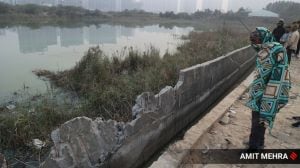A Date With Dracula
My dear and unfortunate successor: It is with regret that I imagine you, whoever you are, reading the account I must put down here... My reg...

My dear and unfortunate successor: It is with regret that I imagine you, whoever you are, reading the account I must put down here8230; My regret is also for you, my yet-unknown friend, because only by someone who needs such vile information will this letter someday be read.8221;
It is with these words that a letter discovered by chance among her father8217;s papers launches the young woman protagonist of Elizabeth Kostova8217;s debut novel The Historian into an adventure that covers centuries and continents, new world and old, and travels through time and space. A young, motherless narrator, a father with a Past, a library, a letter, and a legacy of evil. Oh, and promises of vampires. The best kind: the bloodthirsty ones. What could be a better way to start a novel?
Gleefully I rub my hands together, because the novel already feels like what The Da Vinci Code ought to have been but wasn8217;t: an intelligent romp through personal and collective history, literature and legend, led on through a maze of obscure codes and secret symbols, hidden texts and medieval traditions; and, of course, the imagination. A novel that brings together the mystique of Vlad the Impaler, Dracula, and Evil. Best of all, a sumptuous quest-novel with an intelligent woman as protagonist and narrator. And her narration is cool, thoughtful, intelligent. Much is promised, then, and the novel mostly lives up to the promise. It is an academic quest, far more in the tradition of A S Byatt8217;s Possession than in the farcical potboiler style of Dan Brown.
Like any literary adventure novel, The Historian is not an easy read. It is a handsome and heavy volume, weighing in at close to 650 pages. It is filled with letters, conversations, embedded narratives, italicised accounts. It begins with an old book that has a dragon 8212; a dragon! 8212; printed in the middle. It has scholarship of the best kind: the kind that approaches research as an intellectual adventure. It draws you into the pages and you read on guiltily through the night, shivering a little as the monsoon winds wail outside your windows. Especially when you read a declaration such as Dracula8217;s: 8220;History has taught us that the nature of man is evil, sublimely so.8221; But it is a fascinating and enjoyable experience, and one is thinking about the questions it asks long after one has shut the book 8212; and waiting to get back to it again, when one has the time, the energy and the long weekend to spare for the task.
- 01
- 02
- 03
- 04
- 05































